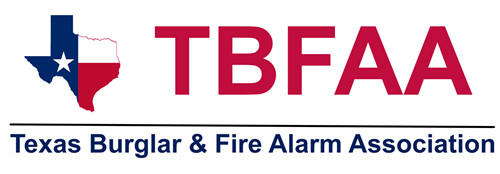
TBFAA Legislative Committee Report on SB 140 Telemarketing Regulation Changes
September 5, 2025 – TBFAA
Texas Senate Bill 140 (SB140) passed during the 89th Regular Session of the Texas Legislature, introduces significant updates to the state’s telemarketing regulations under the Texas Business and Commerce Code (Chapters 302, 304, and 305). These changes primarily expand the scope of regulated communications to include text messages (SMS and MMS), aiming to enhance consumer protections against unwanted marketing. The bill took effect on September 1, 2025, and applies only to conduct occurring on or after that date.
The bill amends the definition of “telephone solicitation” to encompass not just voice calls but also other transmissions, such as text messages, graphic messages, or images sent to induce a purchase, rental, or receipt of goods or services. This includes solicitations where a consumer responds to marketing materials sent via mail or other means. As a result, businesses using SMS or MMS for promotional purposes must now comply with the same telemarketing rules as traditional phone calls, including registration requirements with the Texas Secretary of State (unless exempted). This does not include email solicitations unless the emails are directed to text, nor does this include social media posts/messaging as the users would agree to terms and conditions set forth by the social media provider.
Marketing transmissions to mobile phones, including phone calls and texts, are now regulated the same as telemarketing. The changes extend prohibitions to include sending marketing texts to numbers registered on the Texas and Federal No-Call List (now effectively including a “Text No-Call” aspect). Violations of this, or failure to respect opt-outs, are now explicitly actionable.
The law emphasizes safeguards against false, misleading, abusive, or deceptive telemarketing practices, with the statues to be liberally construed in favor of consumers.
Violations of Chapters 304 (telemarketing rules) and 305 (telephone solicitations) are now deemed deceptive trade practices as defined in Business and Commerce Code, Title 2, Chapter 17, Subchapter E – “Deceptive Trade Practices and Consumer Protection”, allowing consumers to sue directly in court without first filing a complaint with the state agency or waiting for a second violation. This is expected to increase litigation risks for businesses.
Civil penalties for failing to register as a telemarketer can reach up to $5,000 per violation. Under DTPA, consumers may recover treble damages (up to three times economic damages), damages for mental anguish, and attorney’s fees. Prior recoveries in lawsuits do not bar future claims for new violations.
The Texas Attorney General retains authority to pursue violations, but the new private enforcement option empowers individual consumers more directly.
Businesses that participate in telemarketing (including texts) must obtain and maintain a valid registration certificate from the Texas Secretary of State for phone-based marketing activities. To register as a telemarketer with the Texas Secretary of State under the Texas Business and Commerce Code Chapter 302, businesses engaging in telephone solicitations (including voice calls and text messages) must follow a specific process:
- 1) Determine Applicability. Confirm that your business engages in “telephone solicitations,” defined as calls or text messages made to induce the purchase, rental, or receipt of goods or services to consumers in Texas or from a Texas-based location.
- 2) Check Exemptions. If an exemption applies, such as solicitation only to existing or former customers, or the alarm company is a publicly traded company or a subsidiary of a publicly traded company, registration is not required, but compliance with Chapters 302, 304, and 305 including the changes from SB140 are still required.
- 3) Complete the Registration Form. Obtain the “Telephone Solicitation Registration Statement” (Form Series 3400) through the Texas Secretary of State’s website https://www.sos.texas.gov/other/forms.shtml#TSF. The form must include:
a. Seller’s name and any trade name used.
b. Contact information for the business and any parent of affiliated organizations.
c. Each telephone number used for solicitation and the physical location of each business site.
d. Copies of solicitation scripts, written materials sent to consumers, and details about outside product suppliers.
e. Name and address of the seller’s agent in Texas authorized to receive service of process.
f. Financial institution details and account numbers used by the seller.
g. Disclosure of any convictions, judgments, or bankruptcies related to fraud or deceptive practices for the seller or key personnel. All statements must be verified by each principal. - 4) File a Surety Bond. A $10,000 surety bond is required, issued in favor of the State of Texas to protect consumers harmed by the seller’s breach of an agreement during a solicitation. The bond can be obtained from a surety (costs vary by surety providers but are typically between 1% – 10% of the bond amount). The original signed and sealed bond form must be submitted to the Texas Secretary of State’s Registrations Unit. The bond remains in effect for one year and must be renewed annually or cancelled with 90 days’ written notice to the Secretary of State.
- 5) Submit the Registration. File the completed registration form, along with the surety bond, to the Texas Secretary of State’s Registration Unit. Some surety companies offer to file the bond on your behalf at no extra charge. The registration takes effect when the Secretary of State issues a registration certificate and is valid for one year.
- 6) Annual Renewal and Quarterly Updates. The registration must be renewed annually by filing a renewal registration statement and paying the required fee. For each quarter after the registration’s effective date, file an addendum with the Secretary of State listing registration information for each salesperson soliciting on behalf of the business. Alternatively, a copy of the “Employer’s Quarterly Report” filed with the Texas Workforce Commission can suffice.
- 7) Public Disclosures. Post a copy of the registration certificate online or make it publicly available. Before finalizing a sale via solicitation, disclose specific information to consumers, such as the business street address, manufacturer detail for discounted items, or contest rules for prizes.
State Fees. A $200 filing fee is required with the initial registration and each annual renewal.
Timing. Registration must be completed before engaging in telemarketing activities in Texas. Texas allows registration to take effect immediately upon issuance of the certificate.
Penalties for Non-Compliance. Failure to register can result in civil penalties up to $5,000 per violation with potential treble damages if consumers sue under the Texas Deceptive Trade Practices Act (DTPA)
Visit the Texas Secretary of State’s website www.sos.state.tx.us for the registration form and detailed instruction. The full text of Chapter 302 is available at www.statutes.capitol.texas.gov.
Businesses are exempt from registration if they only send texts to former or current customers. If the business solicitations are isolated and not part of a pattern, registration as a telemarketer is not required as the company is not engaging in telemarketing campaigns. Additionally, publicly traded alarm companies, or alarm companies that are a subsidiary of a publicly traded company are exempt from registration, but not from the rules of Chapters 302, 304, 305, and the changes made by SB140.
Special notes for alarm companies: Occupations Code Chapter 1702 does not provide an immediate exemption from telemarketing registration. If the alarm company engages in unsolicited calls or texts to new prospects, registration is required. Ensure compliance with the Texas No Call List and federal Telephone Consumer Protection Act (TCPA) rules as other regulations may be required.
For more info on this and other successful and un-successful legislation plan to attend the TBFAA Annual Convention in Rockwall October 22-24.
